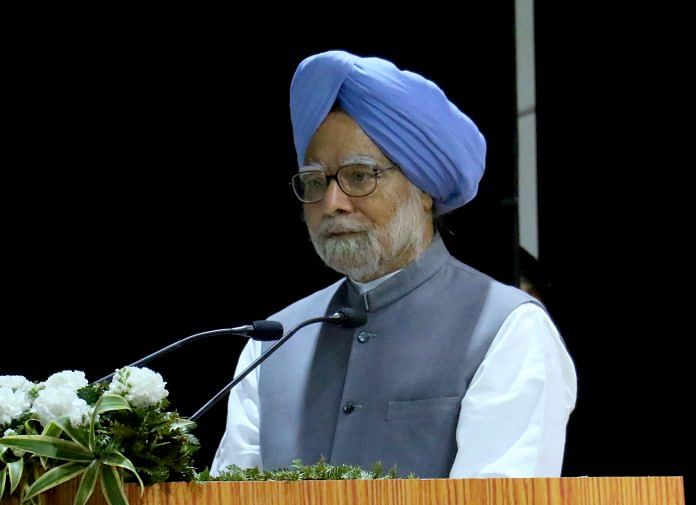In a lecture at his alma mater Panjab University, former PM warns that Indians’ love for authoritarian alternatives will end up destroying the country and all the achievements of the last 70 years.
Chandigarh: Fifty-three years after he left the department of economics at Panjab University, Manmohan Singh returned to deliver a lecture in the memory of his teacher Prof. S.B. Rangnekar Wednesday.
And while he did reminisce on the “happiest days” of his life studying and teaching at the university, the key point of Singh’s lecture was what he called the rise of authoritarian tendencies in the Indian public’s voting preference.
In his lecture, read out before a packed audience consisting largely of university students in the law auditorium, the former prime minister spoke about ‘70 Years of Independence: Strengthening Roots of Democracy’, and warned about the rise of an authoritarian regime.
“Dr Ambedkar once worried that the day may come when people may prefer government for the people to government by and of the people. He saw that as a great danger. On this 70th anniversary, we must ensure that we do not fall into the trap of choosing a government for the people over government by and of the people,” Singh said.
“We need to ask ourselves whether we are losing patience with democracy and turning to more authoritarian alternatives that may well yield superior short-term results, but in the long term, will end up destroying our country and all the achievements of the last seventy years.”
Here are the other important points from his lecture:
On equality
While economic growth remains a high priority for the country, there is a growing concern that the concomitant commitment to ensuring that disparities and inequality do not grow is weakening. This can be a serious potential threat to our democracy. Economists and development experts worldwide including in India are today emphasising the grave danger to sustained growth from growing inequality.
On freedom
Freedom is the freedom to question, the freedom to express one’s views, howsoever troubling they might be for others. The only constant to freedom must be the freedom of others. A dangerous and false binary is now surfacing in Indian political discourse which must be firmly rejected. It is that we have to choose between freedom and development.
On fraternity
I need not dwell long on the current deep concern that attempts are being made to divide the Indian peoples on the basis of religion and caste, language and culture. Atrocities against minorities and Dalits are increasing. If unchecked, these tendencies can only harm our democracy. As a people we must strongly reject divisive policies and politics.
On the electoral system
There is today widespread concern that our electoral system is being undermined by money and muscle power. The faith of the people in democratic elections as the best system to select a government that would govern in the common interest is today being eroded—as much by a sustained campaign to attack democratic institutions and elected representatives as by the increasing political corruption and the capture of political parties and elected office by vested interests.
Personal reminiscences
The former prime minister, who is chair professor of the Jawahar Lal Nehru Chair at the university, taught at the university between 1957 and 1965, leaving to become an internationally-renowned economist.
“Dr Rangnekar and Dr K.K. Dewett founded the department of economics of the Panjab University after partition. The department of economics in those days was located at Hoshiarpur, along with other departments of the university. I joined the department as an M.A. student in 1952. This was the first year of adoption of the new M.A. syllabus,” he said.
“Dr Rangnekar was a great teacher who inspired me to go to Cambridge after my M.A. On return, I joined the department of economics as a senior lecturer. He and his wife treated me and my wife as their family.”
After the lecture, Singh also visited the Guru Teg Bahadur Bhawan, where over 3,500 books donated by him would be made available to students.



